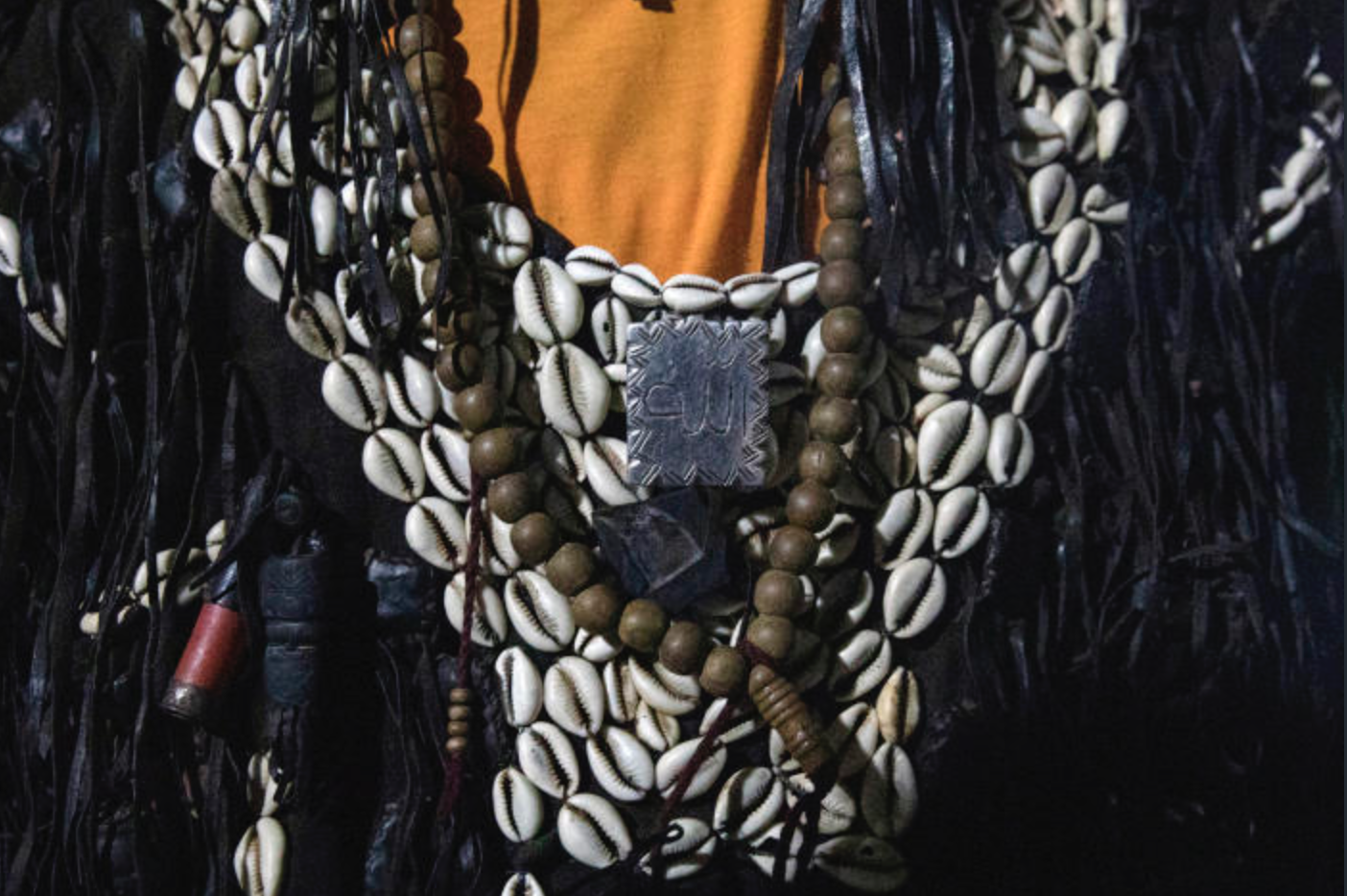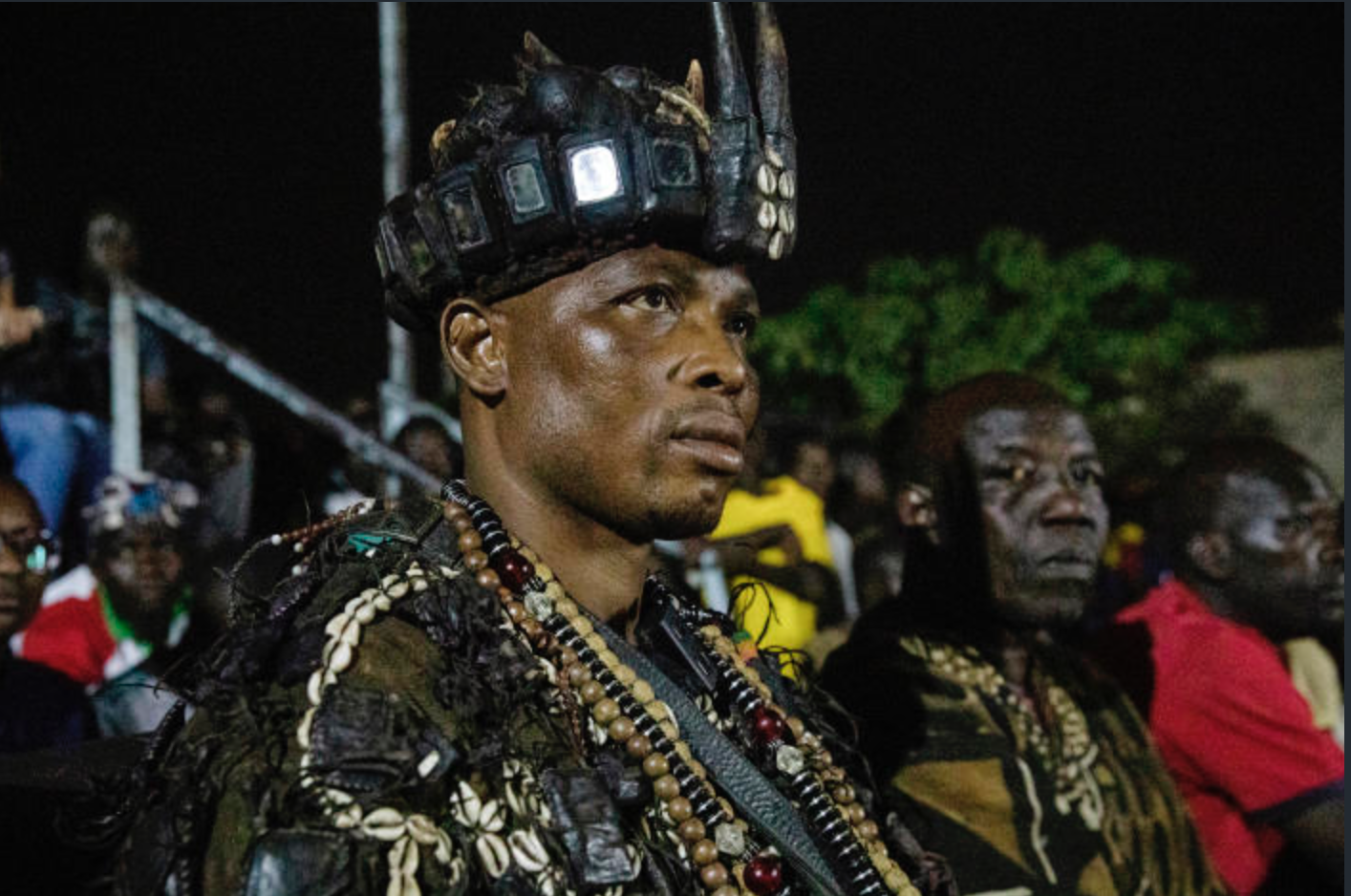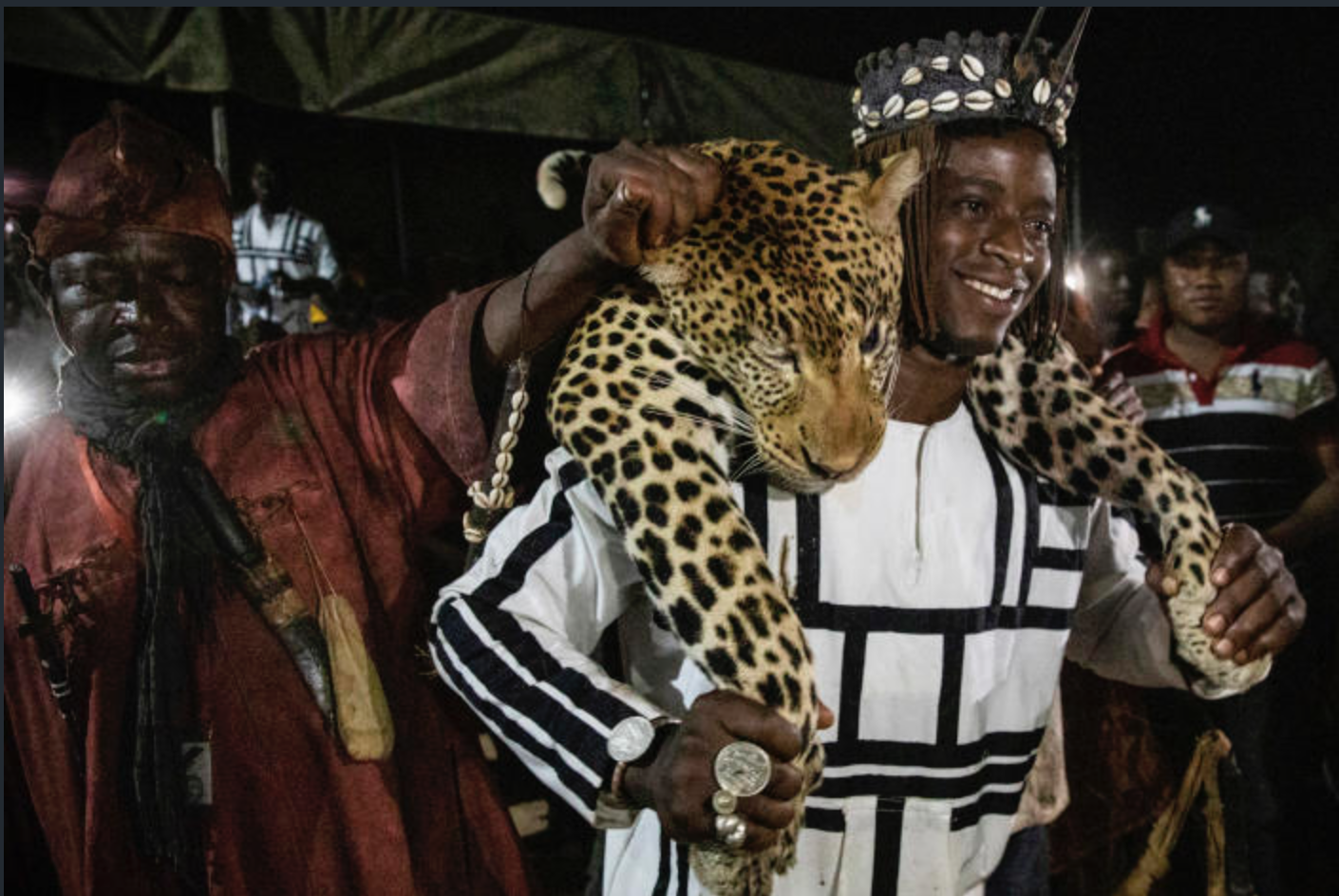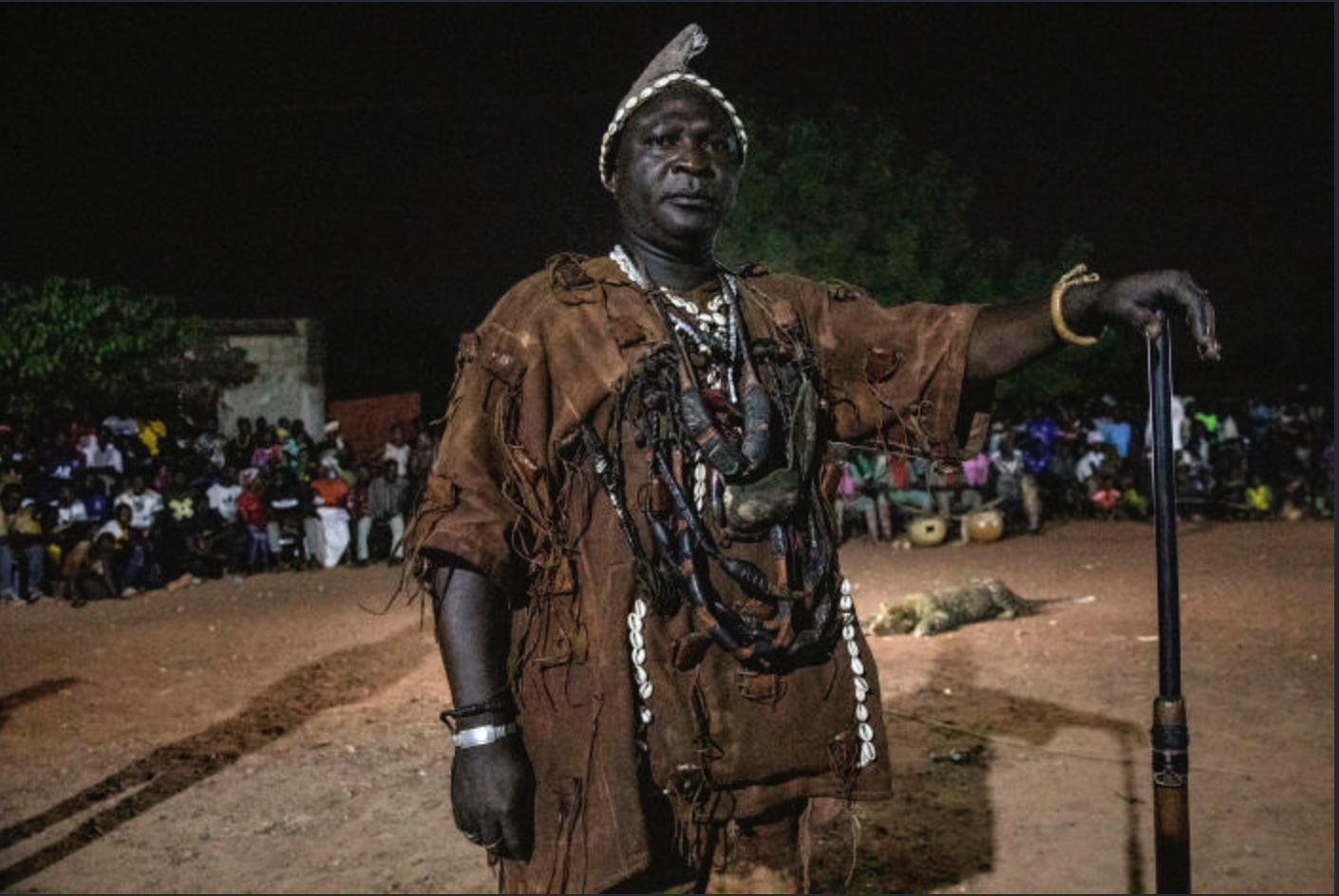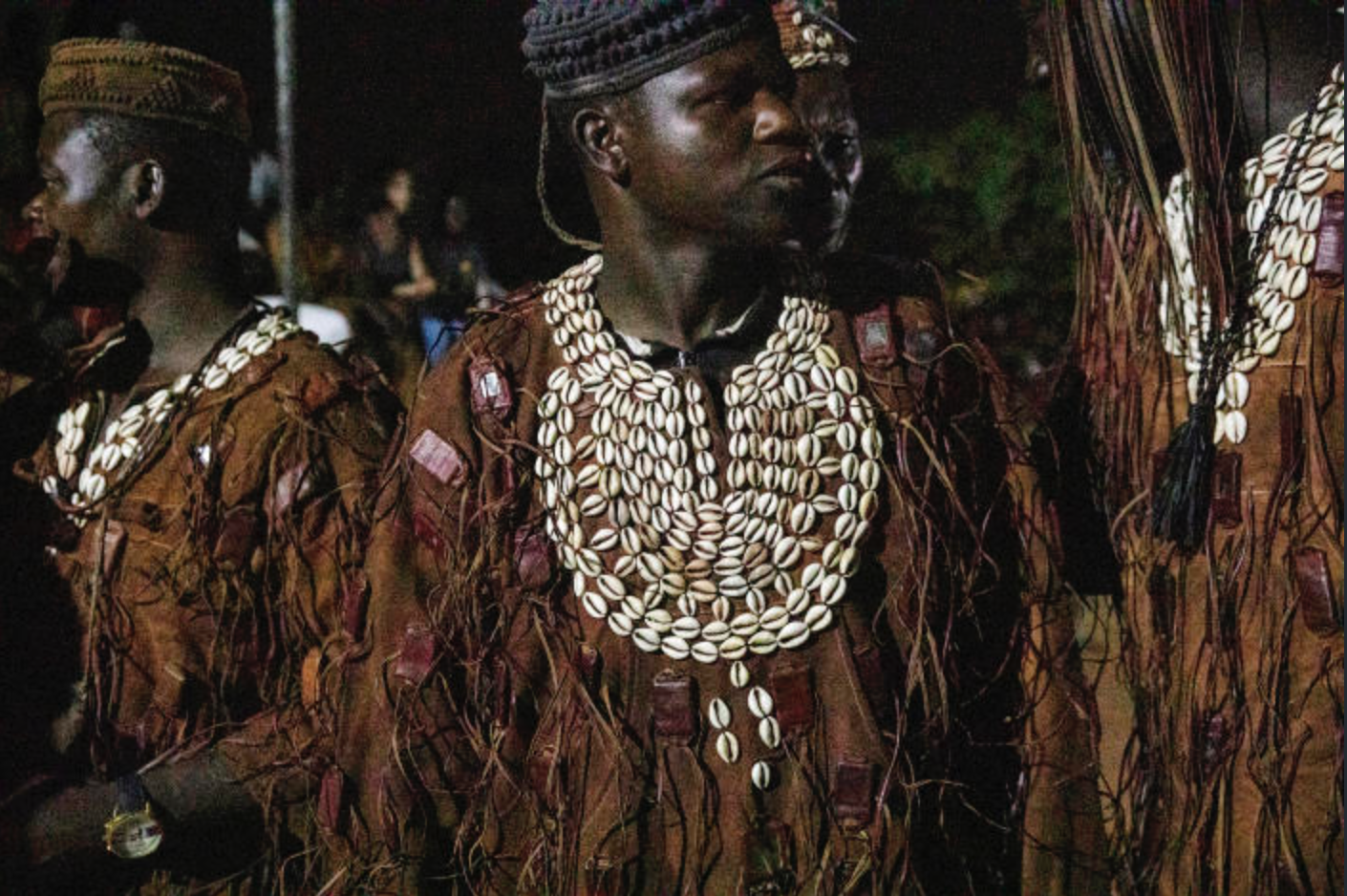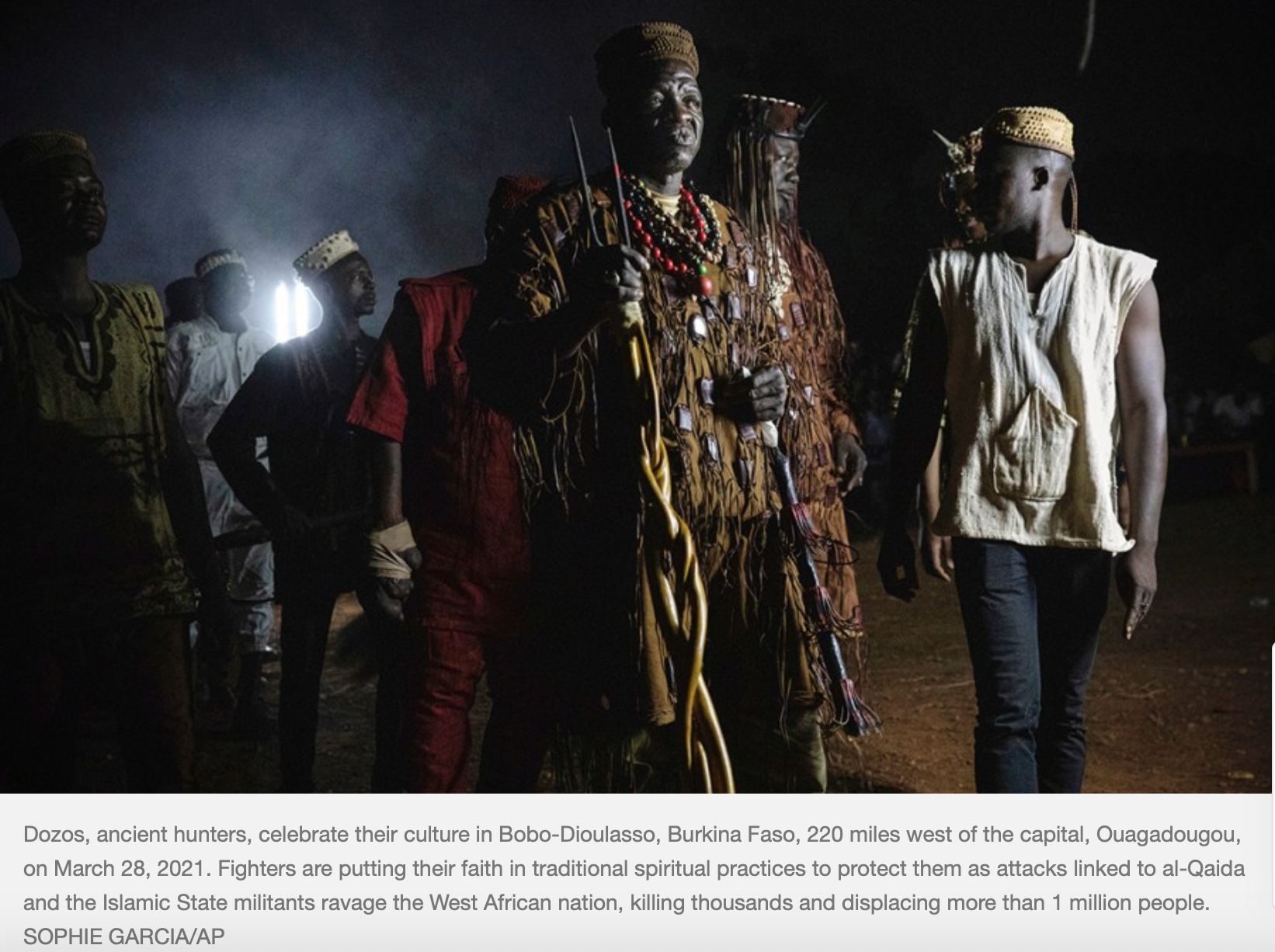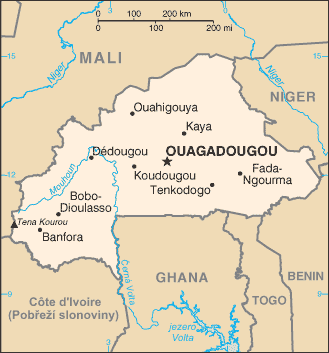Reports on ritual murders in Burkina Faso are scarce but this does not imply that this West African country is spared these gruesome crimes. In the past I’ve posted a few articles on the grim fate of persons with albinism in this country and on the belief in witchcraft and superstition in this landlocked country in the Sahel zone of the African continent.
On April 1 a gruesome crime took place in the capital Ouagadougou, in the neighborhood of Rayongo. A three-year old boy, David Ouédraogo, was unscrupulously murdered; it all looked like a ritual murder. The angry crowd attacked and killed two suspects, allegedly foreigners, a third suspect had more luck and was handed over to the police.
The mother of David, Sarata Ouédraogo, a woman in her thirties, is devastated and beyond consolation. She shares her ordeal with a reporter of Omega Medias – clicking the following link will give access to her sad story.
(FVDK)

Meurtre d’un enfant de 3 ans à Rayongo : Sur la piste d’un crime rituel
Three-year old child murdered in Rayongo-Ouagadougou – mob justice leads to death of two of three suspected ritual murderers
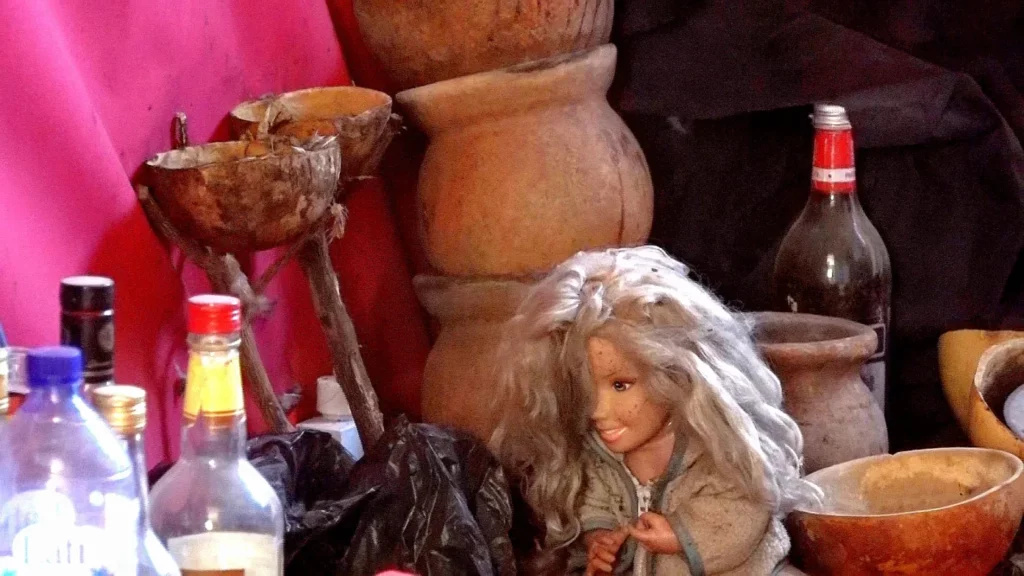
Published: April 4, 2024
By: Charles Dah – Omega Medias, Burkina Faso
Les habitants de rayongo, quartier de la ville de Ouagadougou ont été frappés de stupeur ce lundi 1er avril 2024. La cause, un enfant de 3 ans a été violemment tué. Ses bourreaux seraient trois hommes de nationalité étrangère dont le comportement suspect a attiré l’attention des habitants du quartier. Courroucés, ces derniers finiront par lyncher à mort deux des trois suspects, le troisième quant à lui a été remis aux forces de l’ordre. L’émotion était toujours vive à notre passage, trois jours après le drame et la mère demeure inconsolable.
72 heures après la survenue de l’indicible fait macabre, nous voici sur les lieux du drame. Assis sous un dattier, un groupuscule d’hommes devise à deux pas du domicile familial des Ouedraogo. Touchée par la perte d’un des leurs, un enfant de 3 ans, la famille reçoit les condoléances des habitants du quartier et de ceux venus d’ailleurs. Sur place, l’émotion est vive.
Un peu plus loin, à l’intérieur de la cour, des femmes sont installées. Sur leurs visages se lisent stupeur et désarroi. Par moments, des sanglots montent du groupe, des pleurs dûs à la douleur de la perte brutale et violente du petit David, égorgé par ses bourreaux.
Après échange avec la famille, l’on nous conduit sur la scène du crime située à deux cents mètres du domicile des Ouédraogo.
Sur place, une odeur fétide flotte dans l’air. A l’intérieur de la maison où l’enfant a été tué, du sang, depuis coagulé, recueilli dans des calebasses et des Canaris.
C’est un décor macabre qui a tout d’un crime rituel digne des films d’horreur les plus glaçants. Tout porte à croire que ce sang contenu dans les calebasses est celui de la victime, l’enfant de 3 ans.
Encore effondrée, Sarata Ouédraogo, mère du petit David, la trentaine révolue, yeux rouges, est assise au milieu d’un groupe de dames sur une natte. Visiblement affaiblie par la triste nouvelle, elle s’appuie contre un mur de la maison pour se tenir debout afin de nous expliquer son calvaire. C’est une mère abattue, que nous avons rencontrée ce mercredi 3 avril.
Elle n’arrive toujours pas à croire comment des personnes qui vivaient dans la même cour qu’elle aient pu commettre un acte aussi ignoble, égorger son enfant.
<< Est-ce qu’ils peuvent me faire ça ? On est dans la même maison, c’est moi-même qui prépare et puis vous mangez. Tout ce qu’ils veulent, ils viennent me demander et je leur donne. Jusqu’à ce qu’ils m’appellent maman.>> nous relate la jeune mère entre deux sanglots.
Dame Ouédraogo a été séparée de son fils à jamais. De terribles adieux que la famille Ouédraogo et les habitants du quartier Rayongo digèrent difficilement.
Les faits remontent au lundi 1er avril. En partance au marché la mère de David le laisse à la maison sous la surveillance de la grande sœur de ce dernier. A son retour du marché, plus de David. Malgré de rapides recherches dans le voisinage, pas de nouvelles. Sarata Ouedraogo va questionner un de ses voisins de nationalité étrangère pour savoir s’il a aperçu l’enfant, l’homme lui répond que l’enfant était avec lui il y a à peine 3 minutes. Une réponse qui va semer un doute profond.
Comble de la malice, ledit voisin va même rejoindre un groupe d’habitants, pour poursuivre les recherches, avec probablement pour objectif de donner du temps à ses acolytes pour se débarrasser du corps de l’enfant.
Mais, l’instinct maternel de dame Ouedraogo fini par prendre le dessus. Elle lance au voisin<< Mon enfant est ici (dans la maison du voisin, NDLR). Mon enfant n’est pas ailleurs. Mon enfant est ici. (…) Moi-même je sens que l’enfant est ici.(…) Ce que je sais seulement, c’est que mon enfant est toujours dans cette maison >>. Sarata Ouedraogo nous explique avoir insisté et persisté. Puis elle décide de faire le pied de grue devant la porte de ceux qu’elle soupçonne être à l’origine de la disparition du petit David.
Pendant ce temps, la mobilisation des habitants pour retrouver l’enfant prend de l’ampleur.
Il faudra attendre vers 22h, pour enfin savoir ce qui s’est passé et cela grâce à la contribution d’un homme de tenue arrivé sur place.
<< Quand ils (les habitants du quartier, NDLR) sont partis maintenant, il (le voisin présumé coupable, NDLR) voulait fuir. Le gars (l’homme de tenue, Ndlr) est tourné derrière (à l’arrière de la maison, Ndlr). Il voit quelque chose qui est attaché déposé. Il a voulu soulever, c’est lourd. Djahh c’est mon enfant qui est dedans.>> Ajoute Sarata qui s’effondre en larmes avant de poursuivre <<C’est déjà gâté. Ils ont déjà tué l’enfant.>>.
Les présumés auteurs du crime rituel seront lynchés sur le champ par une foule en colère seul l’un des trois sera remis aux forces de l’ordre arrivées plus tard sur les lieux.
<< C’est une grande tristesse pour nous les membres de la famille. Même si tu es étranger à l’enfant, être témoin de ce drame et tu n’es attristé, tu auras menti.(…) Moi quand j’étais arrivé sur les lieux du drame, j’étais dépassé, car tu mets au monde un enfant et l’élève jusqu’à cet âge et quelqu’un l’egorge comme un poulet, vraiment c’est une perte, une énorme perte>> lâche Sambo Ouedraogo, oncle de la victime.
Le corps sans vie du petit David, ceux de deux des présumés auteurs du meurtre et leur complice rescapé ont été amenés par les forces de l’ordre après les constatations d’usage.
La mère du petit David, en état de choc reste inconsolable. A Rayongo, les habitants sont eux, toujours plongés dans la stupeur.
Ibrahim Niaoné & Abdoul Aziz Zoulabou
Source: Meurtre d’un enfant de 3 ans à Rayongo : Sur la piste d’un crime rituel


